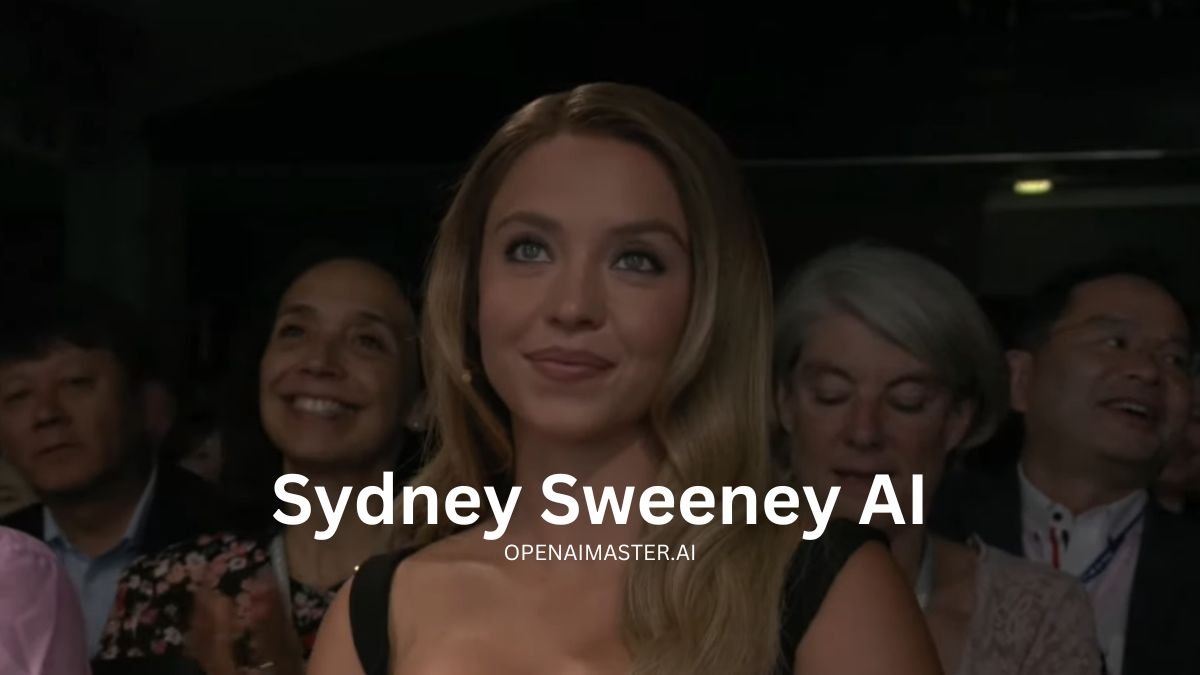In a recent turn of events that has set social media abuzz, Hollywood actress Sydney Sweeney found herself at the center of an unexpected controversy at Samsung’s Galaxy Unpacked tech conference in Paris. The incident, which unfolded during a demonstration of artificial intelligence (AI) technology, has ignited a fierce debate about the role of AI in the entertainment industry and its ability to accurately capture human essence.
Sweeney, best known for her roles in hit series like “Euphoria” and “The White Lotus,” was invited to the stage during the conference as part of a presentation showcasing Samsung’s latest AI capabilities. What was intended to be a moment of technological marvel quickly transformed into an awkward encounter that has since gone viral across various social media platforms.
The crux of the incident revolved around an AI-generated 3D image of Sweeney, created using her portrait as a reference. As the Samsung representative unveiled the image, all eyes were on Sweeney, eager to gauge her reaction. What followed was a moment that many viewers have described as painfully uncomfortable.
Visibly taken aback, Sweeney managed a smile and uttered a polite, “Aww, I love it.” However, her body language told a different story. The disconnect between her words and her apparent discomfort was palpable, even through the screen. This reaction, or lack thereof, quickly became the talk of the internet.
The AI-generated image itself became a subject of scrutiny. Described by some as resembling a Disney princess more than the actress herself, the portrayal failed to capture Sweeney’s unique features and essence. This glaring disparity between the real Sweeney and her AI counterpart only served to heighten the awkwardness of the situation.
As clips of the incident spread like wildfire across social media, viewers were quick to share their thoughts. Comments ranged from sympathetic understanding of Sweeney’s position to harsh criticisms of the AI technology’s shortcomings. Some described the moment as “deeply embarrassing” and even went as far as calling it “the worst thing I’ve ever watched.”
This incident has opened up a broader conversation about the integration of AI in various aspects of our lives, particularly in the entertainment industry. As AI technology continues to advance at a rapid pace, questions about its ability to replicate human nuances and emotions have come to the forefront.
One of the primary concerns raised in the wake of this incident is the potential threat AI poses to human actors. Some fans speculated that Sweeney’s uncomfortable reaction might have stemmed from an underlying fear of AI eventually replacing human actors in the entertainment industry. While this may seem like a distant possibility, the rapid advancements in AI technology have made such concerns increasingly relevant.
It’s worth noting that this wasn’t Sweeney’s first association with Samsung. The actress had previously appeared at their Unpacked event in 2023 and was featured in an advertisement for the Z Flip 5 phone. However, this particular interaction seems to have resonated with viewers in a way that her previous engagements did not, primarily due to the palpable awkwardness of the situation.
The incident serves as a stark reminder of the current limitations of AI technology, particularly when it comes to replicating the subtleties of human appearance and expression. While AI has made significant strides in various fields, including image generation, this event highlights the challenges that remain in creating truly lifelike representations of individuals.
Moreover, the incident underscores the importance of considering the human element when showcasing AI capabilities, especially in public forums involving celebrities. The disconnect between the AI-generated image and Sweeney’s actual appearance raises questions about the ethical implications of using such technology without proper consent or accuracy.
This event has also sparked discussions about the potential misuse of AI-generated images and deepfake technology. As AI becomes more sophisticated, concerns about the creation and dissemination of fake images and videos are growing. The Sweeney incident serves as a reminder of the need for robust safeguards and ethical guidelines in the development and use of AI technology.
From a broader perspective, this incident highlights the growing pains associated with the integration of AI into various aspects of our lives. As we continue to push the boundaries of what’s possible with technology, we are bound to encounter moments of discomfort and uncertainty. The key lies in how we navigate these challenges and ensure that technological advancements enhance rather than diminish human experiences.
For the entertainment industry, this event serves as a wake-up call. As AI technology becomes more prevalent in film and television production, from special effects to character creation, it’s crucial to strike a balance between technological innovation and the irreplaceable human element that actors bring to their roles.
Looking ahead, it’s clear that the relationship between AI and the entertainment industry will continue to evolve. While AI has the potential to revolutionize many aspects of content creation, events like the Sweeney incident remind us of the importance of maintaining authenticity and respecting the unique qualities that human performers bring to their craft.
As for Sydney Sweeney, this awkward moment at the Samsung event may soon fade from public memory. However, the questions and debates it has sparked about the role of AI in our lives and in the entertainment industry are likely to persist for some time to come.
In conclusion, the Sydney Sweeney AI incident serves as a fascinating case study in the ongoing dialogue between technology and humanity. It reminds us that as we continue to push the boundaries of what’s possible with AI, we must not lose sight of the human element that gives life and meaning to our experiences. As we move forward, finding the right balance between technological innovation and human authenticity will be key to ensuring that AI enhances rather than diminishes our world.

